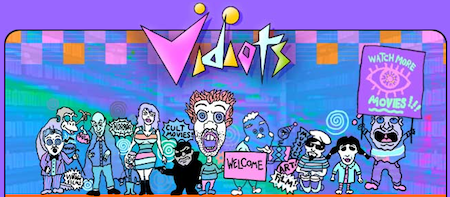
The Times had a noteworthy article in yesterday’s paper, about the approaches independent video rental stores are taking as they battle behemoths like RedBox and Netflix. While many indie shops have simply shut down — R.I.P, Kim’s — others, as the video-world equivalents of Amazon and Walmart encroach on their formerly solid business models, are choosing fight over flight. And they’re fighting, specifically, by reinventing themselves and the products they sell. As corporate Goliaths undersell them — with prices that are, in some cases, pretty close to full-on free — some indie stores are simply changing the products they offer.
It’s an old story, to a large extent — much of the article has a 2002 called, wants its trend back vibe to it — but it’s one whose thesis is made fresh by Netflix’s recent announcement of its updated pricing, which could have a big (and good) effect on smaller video stores. (Not only has the move provoked ire in some customers, leading them to defect from the brand altogether; there’s also “the notion that Netflix’s future appears to be in online streaming, not DVD’s, may return some business to video stores, given that fewer movie titles are now available via streaming.”)
For the Lab’s purposes, though, the main story here isn’t just that the video stores are adapting themselves to a new video-consumption environment, but how they’re doing it: through creating community around the products they’re selling. Vidiots, a popular video-rental spot in L.A., opened a community space, the Annex, last year. It uses the space to hold classes (“Film Studies“) and to host events: lectures from filmmakers, spoken-word performances, movie sing-alongs (yesterday’s: Jesus Christ Superstar), and more. (Vidiots also rents out the space when it’s not being used.)
“We felt that with Netflix and the Internet, what we should be focusing on was community and people talking to each other,” Patty Polinger, Vidiots’ co-owner, tells the Times’ Nicole Laporte. “We just wanted to go the other extreme and be more interpersonal.”
Vidiots is a unique case compared to, say, national news organizations: It’s in L.A., and so has special access to filmmakers and their fans; and it deals in movies, which are leisure activities and inherently social and so lend themselves rather seamlessly to in-person cultural events. Still, though, the store’s success (“success,” at this point, in the sense of “survival”) could be instructive for news orgs. Vidiots isn’t just engaging in community for community’s sake, desperately carving out a new revenue stream for itself; it’s taking what you could call its core mission — providing people with entertainment — and simply translating that mission into a new source of sustainment. It’s changing the product it sells, subtly: from movie rentals to movie-based experiences.
Or, in business terms, it’s reconsidering what customers actually “hire” a movie to do. In his course at Harvard’s Business School, the innovation theorist Clayton Christensen tells the story of a fast-food chain that wanted to improve its milkshake sales. It hired one of Christensen’s fellow researchers to analyze how, exactly, people were using milkshakes — and discovered that a whopping 40 percent of the chain’s shakes were purchased first thing in the morning, largely by commuters. Though the customers’ moms would be horrified by this, what the researcher discovered was that, to them, the shakes weren’t actually “milkshakes” at all, but rather portable breakfasts that they could nurse through long drives, easily and without mess. The customers weren’t just ordering shakes; they were, essentially, “hiring” the shakes to do a job. Once it had that insight, the chain could focus on offering products that could do that job for its customers.
That simple shift in perspective — thinking in terms of jobs accomplished rather than products offered, and profiting from it — is key to what Vidiots is doing. And it’s intriguing to consider what the shift might look like when applied to journalism. News outlets are certainly getting into the community game — through social media, of course, but also through IRL events like the NYT’s TimesTalks, the Journal’s Weekend Conversations, the Texas Tribune Festival, the Register-Citizen’s newsroom cafe, and on and on — but often those happenings are presented as subsidiary products, as events that are separate from the news itself. They’re just another revenue stream — just another product sold, just another milkshake.
But: What if they were more than that? What if news outlets were to consider themselves as doing a job rather than selling a product? And what would happen to organizations’ business models if we started to think of “the news,” at its core, not as a product, but as an event?